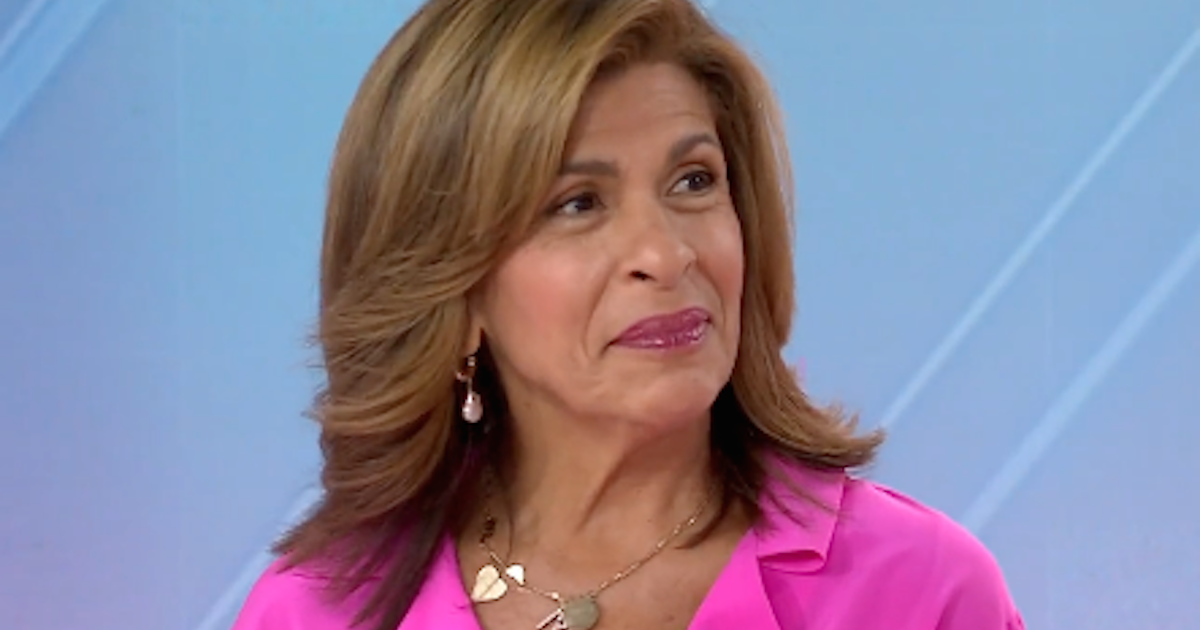Celebrating Milestones
- “Today Show” host Hoda Kotb, mom to six-year-old Haley and four-year-old Hope, offered some insight into her emotional experience with adoption during her recent high school reunion over the weekend.
- Recounting the big event, which took place at Fort Hunt High School in Alexandria, Virginia, Kotb explained the monumental moment she received the call saying her daughter had arrived.
- Kotb, who adopted Haley in 2017 and Hope in 2019 after experiencing fertility struggles following her breast cancer battle, described the joyful moment when her daughter ran up on the stage at her reunion as “one of those pinch me, amazing moments.”
- “When a woman is diagnosed with cancer in her childbearing years, fertility preservation should be a part of the conversation, like it’s part of the treatment plan,” Jaime Knopman, MD, a reproductive endocrinologist at CCRM Fertility in New York City, previously told SurvivorNet. “Everyone in their reproductive years should be advised of their options.”
- Reaching milestones during or after a cancer battle is huge. These events like getting engaged, reaching another birthday, a high school reunion, or a “cancerversary” may mean even more than they did previously, so it’s important to take them all in and celebrate all that you’ve overcome.
Recounting the big event, which took place at Fort Hunt High School in Alexandria, Virginia, the breast cancer survivor talked about being a “late bloomer in life” and how she adopted her daughters after turning 50.

“And so, when I was at my reunion and I said … ‘and she’s here,’ and little Hope came buzzing up on the stage, not afraid of anything, wearing my old high school cheerleading uniform.”
Kotb, who adopted Haley in 2017 and Hope in 2019 after experiencing fertility struggles following her breast cancer battle, described the joyful moment when her daughter ran up on the stage as “one of those pinch me, amazing moments.”
Hoda is talking all about attending her high school reunion over the weekend, opens up about seeing former classmates and instructors again and even brought her daughter Hope on stage during her speech! pic.twitter.com/wmWeoI5m1s
— TODAY with Hoda & Jenna (@HodaAndJenna) October 2, 2023
Hoda Kotb’s Inspiring Cancer Battle and Journey to Motherhood
Kotb knows what it’s like to confront a health challenge and overcome it as a breast cancer survivor herself. She was diagnosed with cancer in 2007.
Her doctors discovered lumps in her breast tissue during a routine exam. She treated her breast cancer by undergoing a mastectomy, which means one of her breasts was removed. She then had breast reconstruction surgery, which rebuilds the shape and look of the breast.
WATCH: Understanding a New Breast Cancer Diagnosis: An Introduction
After surgery, the beloved news anchor continued her treatments by taking the drug tamoxifen (Nolvadex) for five years. Tamoxifen is a selective estrogen receptor modulator which means it works to prevent estrogen from helping cancer cells to grow.
It is also used to prevent breast cancer among women who are at high risk for breast cancer because of family history.
Kotb previously told “Prevention,” an online health news resource, she is cancer free.
“Cancer shaped me, but it did not define me. It’s part of me, but not all of me,” Kotb said at the annual Breast Cancer Research Foundation New York Symposium and Awards Luncheon in 2017.
Expert Fertility Prevention Resources
- After A Cancer Diagnosis: Getting Fertility Hormone Injections
- Fertility Preservation After a Cancer Diagnosis
- Preserving Fertility During Cancer Treatment: What Are the Options?
- How Does Chemotherapy Affect Fertility?
- U.S. Breast Cancer Rates are Rising: Is It Linked to Women’s Growing Obesity, Dropping Fertility?
Kotb also dealt with fertility struggles following her breast cancer diagnosis and treatment.
“I remember that my oncologist called, and we were talking about freezing my eggs,” Kotb previously told Good Housekeeping. “She basically said that given my age and (my breast cancer treatment), it was pretty close to a dead-end.”
Her reaction was, understandably, filled with sorrow. And at that moment, she doubted she’d ever realize her dream of becoming a mother.
Dr. Terri Woodard discusses your options for preserving fertility after a cancer diagnosis
And she thanks her now ex-fiance, financier Joel Schiffman, for providing the support she needed to become a mother.
“I don’t think I would’ve adopted if it hadn’t been for Joel,” she said of Schiffman, whom she split from after eight years together.
“Having a stable relationship in that moment was really important. Once that fell into place, it didn’t seem as scary to me.”
View this post on Instagram
Understanding Fertility Preservation
“When a woman is diagnosed with cancer in her childbearing years, fertility preservation should be a part of the conversation, like it’s part of the treatment plan,” Jaime Knopman, MD, a reproductive endocrinologist at CCRM Fertility in New York City, previously told SurvivorNet.
“Everyone in their reproductive years should be advised of their options.”
Freezing Eggs Or Embryos: What Should I Do?
Some types of chemotherapy can destroy eggs in your ovaries. This can make it impossible or difficult to get pregnant later. Whether or not chemotherapy makes you infertile depends on the type of drug and your age since your egg supply decreases with age.
“The risk is greater the older you are,” Knopman explained. “If you’re 39 and you get chemo that’s toxic to the ovaries, it’s most likely to make you menopausal. But, if you’re 29, your ovaries may recover because they have a higher baseline supply.”
If your cancer treatment includes surgery in which both ovaries are completely removed, then IVF will likely be needed to help get pregnant.
Radiation to the pelvis can also destroy eggs. It can damage the uterus, too. Surgery to your ovaries or uterus can hurt fertility as well.
Meanwhile, endocrine or hormone therapy may block or suppress key fertility hormones and may prevent a woman from getting pregnant. This infertility may be temporary or permanent, depending on the type and length of treatment.
If you are having a treatment that includes infertility as a possible side effect, your doctor won’t be able to tell you for sure whether you will have this side effect. That’s why you should discuss your options for fertility preservation before starting treatment.
Giuliana Racic’s advice to those going through cancer treatment
Research shows that women who have fertility preservation prior to breast cancer treatment, in particular, are more than twice as likely to give birth after treatment than those who don’t take fertility-preserving measures.
Reaching Milestones as a Cancer Survivor
Reaching milestones during or after a cancer battle is huge. These events like getting engaged, reaching another birthday, a high school reunion, or a “cancerversary” may mean even more than they did previously, so it’s important to take them all in and celebrate all that you’ve overcome.
I’m Able to Be Here For More Milestones One Cancer Survivor’s Incredible Story
Chrissy Degennaro is also a cancer warrior determined to keep enjoying these precious milestones. She has been battling a rare blood cancer called multiple myeloma for 14 years, and was first diagnosed when she was just 36 years old with a 2-year-old son.
When she was given her diagnosis, she almost expected to not be able to see him enter kindergarten. But thanks to 27 rounds of chemotherapy, two stem cell transplants, a CAR-T cell trial and two CAR-T cell transplants over following 14 years, she’s able to keep making memories with her family.
“You know, I do live one day at a time,” Chrissy previously told SurvivorNet. “Now, maybe I can go a week, a month, but things are looking pretty good. I’m able to be here for more milestones for my son, for more holidays, more birthdays. I do feel like I have had another chance at life.”
Contributing: SurvivorNet Staff
Learn more about SurvivorNet's rigorous medical review process.


